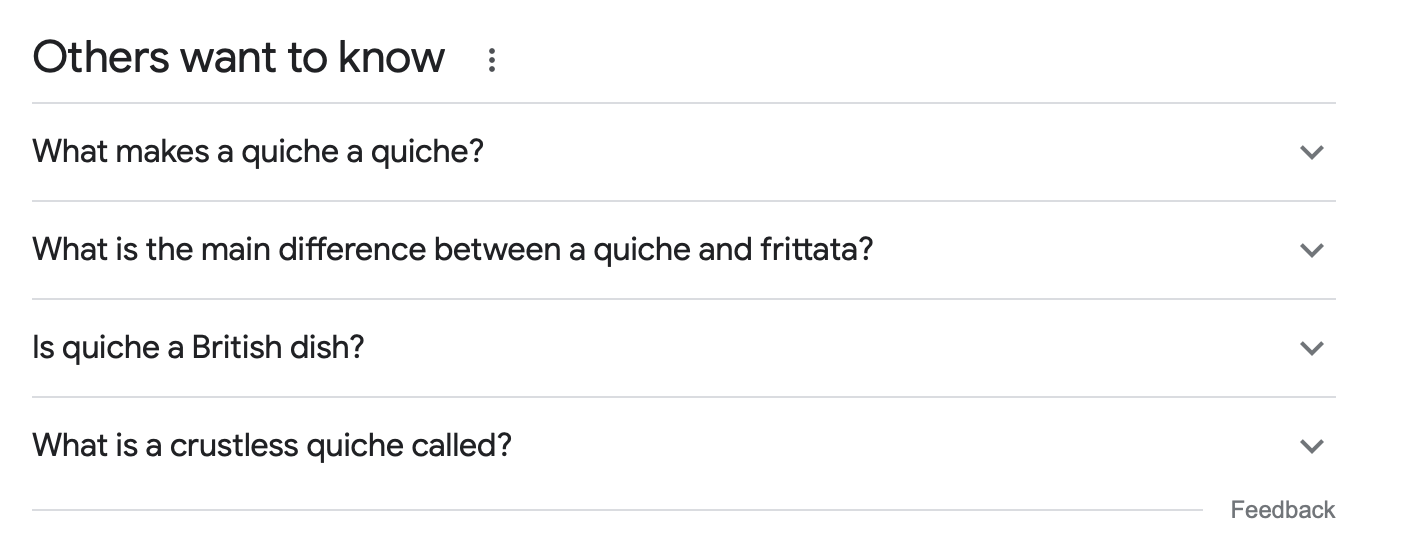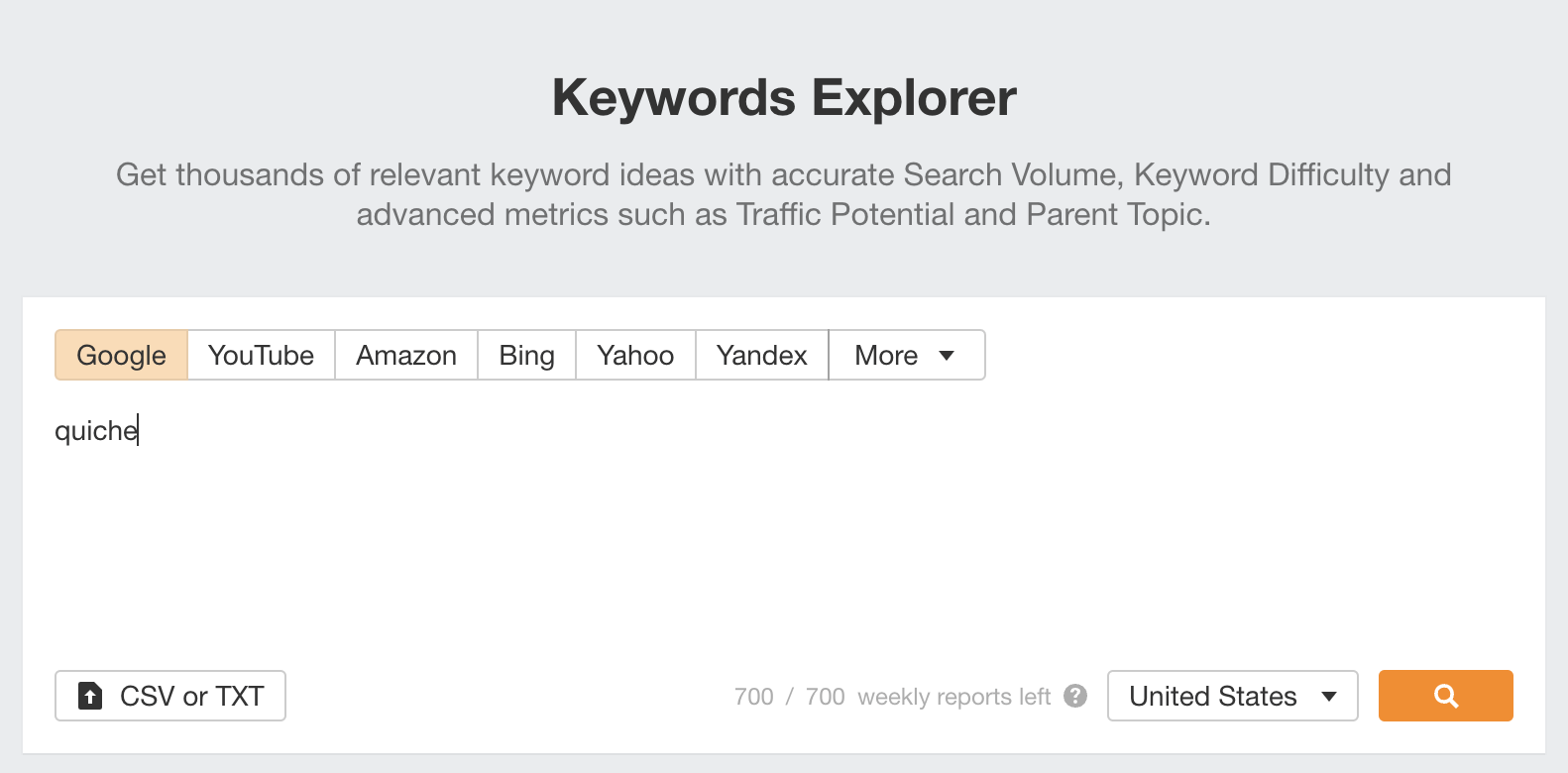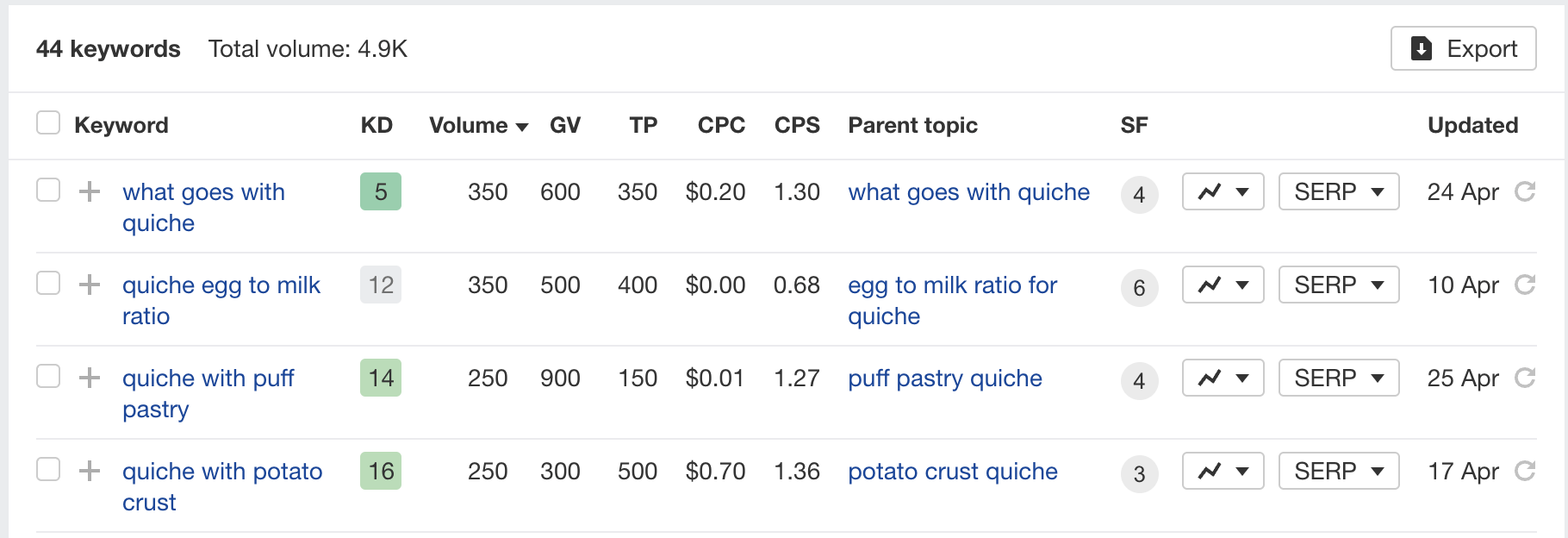Long-tail Keyword
What is a Long-tail Keyword?
Long-tail keywords are search terms that are more specific and less competitive than head terms (short-tail keywords).
They can be longer keyword phrases, consisting of 3, 4, or 5 words, but shorter keyword phrases can still be considered long-tail if they have a lower search volume among keywords on a similar topic.
Attempting to target and rank for long-tail keywords is a popular SEO strategy these days.
Why are long-tail keywords important?
Long-tail keywords are important because they’re usually less competitive, which makes them realistic targets for newer websites.
“Head terms” or short-tail keywords with large search volumes tend to be more attractive targets for larger and more authoritative websites, as these sites have a better chance of ranking with competitive terms.
Here are a few reasons why newer or smaller websites can benefit from creating content around long-tail keywords:
- With long-tail keywords, it’s easier to match search intent. (Consider the difference between writing for “boat shoe” versus “the top boat shoes for women.”)
- Long-tail keywords can provide higher conversion rates because they’re much more tailored to what the user is looking for.
- Long-tail keywords are usually more specific and (for commercial keywords) can indicate a higher intent to buy, which is especially valuable for site owners looking to monetize their content.
How to find long-tail keywords?
If you want to come up with long-tail keyword ideas for your website, there are a few different methods to consider. You can mix and match the following to build out a large list of relevant keywords to target with your content.
1. Look at the questions asked on Q&A websites.
On Reddit, Quora, and other Q&A-style websites, you’ll find people asking specific, extended questions that can give you a lot of potential topic ideas to cover. This is a great way to find important long-tail keywords for your audience or niche!
For example, if you wanted to discover common questions people on Quora have about making “quiche,” you could search for the term in the search bar and then select the “Answer” tab. This reveals a list of actual questions that Quora users have asked about Quiche, along with some answers.

If you want to find questions on Reddit, you can search for your topic and check out relevant Reddit communities, posts, and comments that include your target keyword.
However, it’s sometimes helpful just to search the same term in Google with “your topic” + “reddit.”

In this case, we can quickly found a post asking a question about the “best quiche fillings,” along with answers from real people. For a cooking blog, this process reveals a ton of great content ideas in minutes!
2. Find topic ideas straight in Google’s SERP.
If you want to create content that will rank in Google, the search engine itself is a logical place to look for long-tail keyword ideas.
Google has a wealth of features that can provide suggestions, including the “Others want to know” box, related searches, and even autocomplete.
Here are some examples:
People also ask
In Google’s search results, you can find a list of questions under the “People also ask” or “Others want to know” box.

To see even more, simply expand one of the questions, and you’ll get a long and helpful list of relevant questions for your topic.
Related searches
If you scroll past the first ten or so organic results on Google’s SERP, you’ll see a section called “Related searches.”

This gives you anywhere from a few to several additional search queries that are similar to the one you typed into Google.
Note that you can always click one of these and get a whole new set of related searches!
Autocomplete
One of the easiest methods to see potential long-tail keywords is to type your topic into Google without hitting “Enter”.

Google’s Autocomplete feature will provide a set of suggestions or predictions, including some you may not have thought of. In the case of the “quiche” topic, I already see a “quiche no crust” long-tail keyword that could be interesting.
Like with the Related search option, you can always click on one of these results and then use the Autocomplete method again to see even more keyword ideas!
3. By using keyword research tools
To find keyword ideas at scale, one of the most effective methods is using keyword research tools like Ahrefs. Here’s how to find long-tail keywords in Keywords Explorer.
First, type in your seed keyword (parent topic) and hit enter to generate an initial list of keyword ideas. In this case, let’s stick with “quiche” as our topic.

Open one of the “Keyword ideas” reports in the sidebar to see a wide range of relevant keywords based on the seed keyword.
From here, you can manually analyze these results and choose keywords, but you can also refine what you see with additional filters. You can decide what those parameters should be, but one possibility is to set the maximum Keyword Difficulty, search volume, and maybe a minimum Word count.

If we set these filters for our “Quiche” topic, here’s a glimpse at the keyword suggestions we get right in Ahrefs.

Note that these keywords are all lower keyword difficulty and long enough to be quite specific, so you have a decent chance of ranking for any of them as a smaller website.
You can always choose other filters or adjust them to be more or less strict, but overall, this keyword research process in Ahrefs Keyword Explorer is an easy way to narrow down a massive list of results into a curated list of actionable keywords to target.
FAQs
Should you target long-tail or short-tail keywords?
Like with many other things in SEO, the answer is “it depends.”
If you have a new website, are relatively unknown, and don’t have the time/effort/money to invest in link building, it probably makes sense to start with long-tail keywords.
With that said, there’s no magic in SEO. It’s all about hard work. Anyone can build a reputable website with a strong backlink profile, and once your site starts to gain traction in the SERPs with longer-tail keywords, you can expect to rank short-tail keywords with high search volumes and get even more traffic!
What are short-tail keywords?
Short-tail keywords are broad keywords that get a higher traffic volume and have high competition, in contrast to long-tail keywords.
These short-tail keywords are usually no more than two or three words in length, but the broad appeal and high amount of traffic make a keyword “short-tail.”
Generally, short-tail keywords serve as “seed keywords” that you can use to derive long-tail keywords that are easier to target and rank for.
How many long-tail keywords should I target?
The more long-tail keywords you target, the better! Each one gives you another opportunity to rank in search engines and attract relevant organic traffic to your site.
But here’s an important point to remember: with long-tail keywords, you’ll usually target one keyword per page. But if you manage to rank for any short-tail (head) keyword, you’ll often automatically rank for tens, hundreds, or even thousands of long-tail keywords as well!